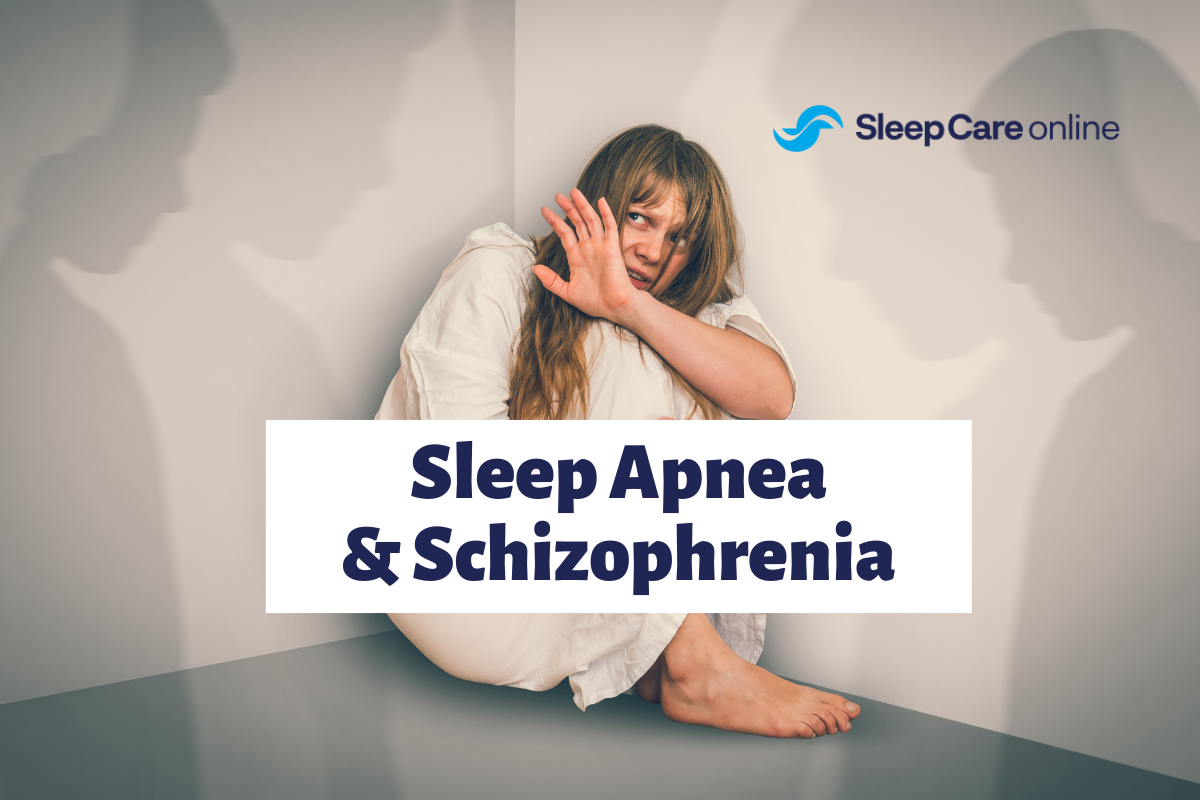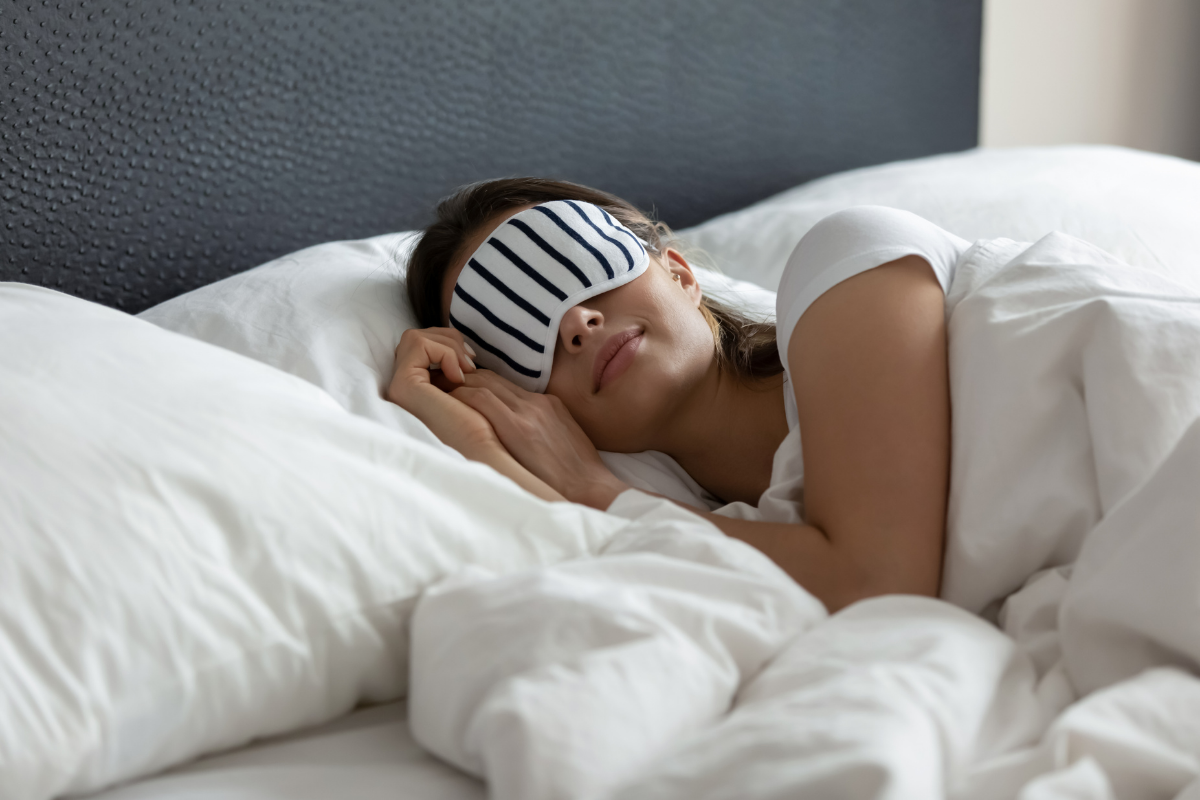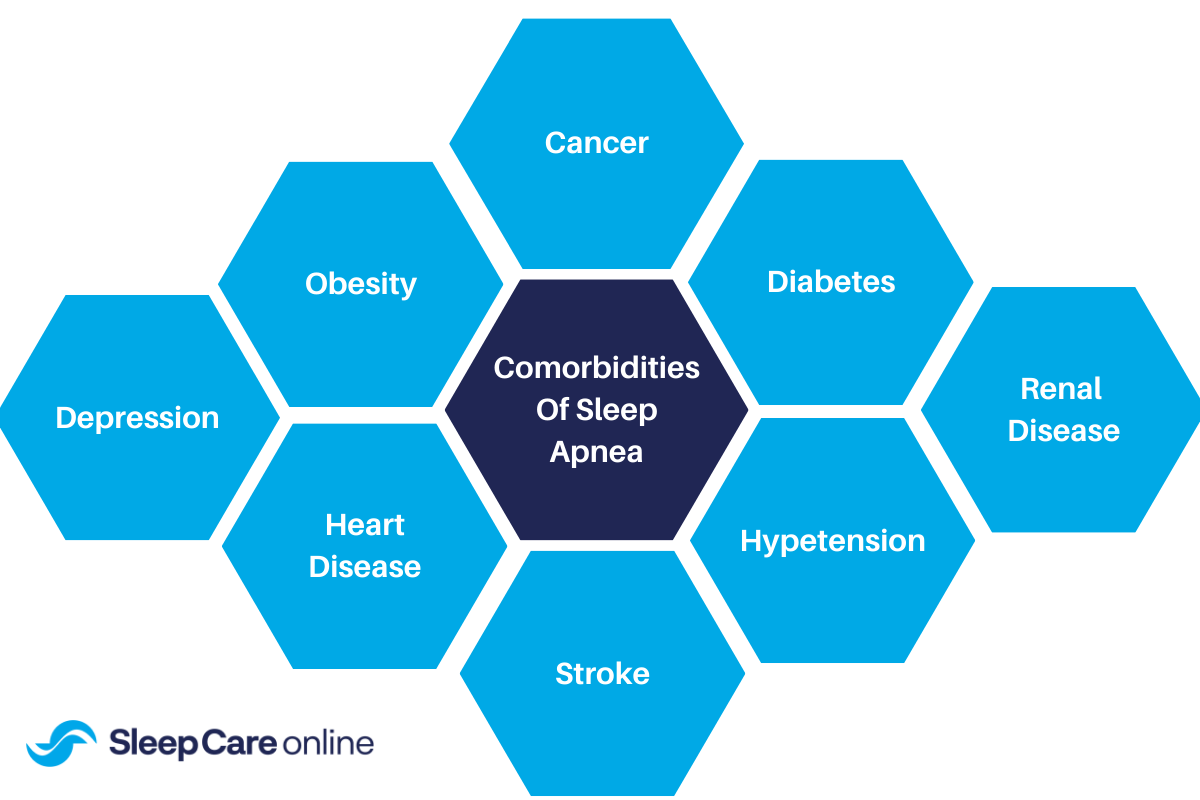 Poor sleep and poor mental health go hand in hand. For those with serious mental illnesses such as schizophrenia, sleep loss due to disorders like sleep apnea can magnify symptoms such as mood changes, impaired cognitive function, and other critical implications for schizophrenia patients such as suicidal thoughts and suicidal ideation.
Poor sleep and poor mental health go hand in hand. For those with serious mental illnesses such as schizophrenia, sleep loss due to disorders like sleep apnea can magnify symptoms such as mood changes, impaired cognitive function, and other critical implications for schizophrenia patients such as suicidal thoughts and suicidal ideation.
What Is Schizophrenia?
Schizophrenia is a chronic and incurable brain disorder. Schizophrenic episodes may involve delusions hallucinations or extreme paranoia. When a schizophrenic patient is not experiencing these traumatic episodes, they are still affected by their disease.
Most schizophrenics are disorganized and unable to make consistent plans in their daily lives. They also often lack good communication skills and may require assistance with managing their lives, depending on the severity of their condition.
Researchers believe that a number of genetic and environmental factors contribute to the development of the disease. Stressful events in life may play a role in the start of symptoms. Since multiple factors may contribute, scientists cannot yet be specific about the exact cause in each individual case.
What Causes Schizophrenia?
Certainly, a family history of mental illness can be a risk factor for developing the disease. Usually, schizophrenia starts in late youth and early adulthood.
Scientists believe that many different genes may increase the risk of schizophrenia development, but that no single gene causes the disorder by itself. It is not yet possible to use genetic information to predict who will develop schizophrenia. Scientists also think that interactions between genes and aspects of the individual’s environment are necessary for schizophrenia to develop.
Symptoms of Schizophrenia
Symptoms of schizophrenia include:
- Hallucinations and paranoia
- Delusional thinking and distorted perceptions
- Confused thoughts and speech
- Declining educational performance
How Does Schizophrenia Affect Your Body?
Poor mental health can affect physical health. Patients with schizophrenia tend to not take care of themselves often leading to health issues. Obesity is one of the most significant problems with schizophrenia, often leading to obesity-related diseases such as cancer.
Other health problems from neglect include cardiovascular disease and diabetes. Schizophrenic patients do not monitor their eating habits and may not have regular visits to a doctor for exams. Some schizophrenics are at risk for viral diseases such as HIV, often as the result of trying to self-medicate through drugs. All of these health concerns compounded usually mean that most schizophrenics do not live long and healthy lives.
What Mental Illnesses Associated with Sleep Apnea?
Sleep apnea can have an effect on mental health and whether you are diagnosed or not with this sleep disorder, it creates a higher risk for the following mental illnesses:
- Anxiety
- Depression
- Bipolar Disorder
- Panic Disorder
- Schizophrenia
Can Sleep Deprivation Trigger Schizophrenia?
Yes, Sleep deprivation can lead to delusions, hallucinations, and paranoia. If you are having sleep problems, you may likely feel anxious and/or depressed, which could lead to psychotic episodes.
How Does Sleep Apnea Affect the Brain?
If you have sleep apnea, your breathing repeatedly starts and stops while you are asleep at night. This lack of air can interfere with getting oxygen to the brain. Without the proper oxygen, the brain can experience low oxygen levels (hypoxia) and decreased blood flow (ischemia). Additionally, sleep apnea can also cause damage to the brain’s white matter. For your brain to functional properly, getting an adequate amount of sleep is crucial.
Does Sleep Apnea Affect Schizophrenia?
Along with other health issues, schizophrenics may also experience poor sleep. Mostly due to their degraded physical health, a schizophrenic patient may also develop sleep apnea. Because sleep apnea causes sleep deprivation, a schizophrenic person may begin to see the ill effects of losing sleep.
Decreased oxygen levels can further decline an already depleted mental state, worsening symptoms and triggering schizophrenic episodes. The presence of OSA in the schizophrenic population has been found to be as high as 48%.
Does Schizophrenia Affect Sleep Apnea?
While there Is no direct indication that schizophrenia affects sleep apnea, the mental illness may affect other biological and behavioral markers that may lead to the sleep disorder. Some evidence suggests that schizophrenic patients may experience disrupted circadian rhythms, which may cause insomnia as well as sleep apnea. Other lifestyle issues rooted in schizophrenia such as night eating, excessive alcohol use, and sleeping during the day can disrupt normal and healthy sleep patterns. Sleep apnea may result from these behaviors.
Studies That Link Sleep Apnea and Schizophrenia
Recent research shows that people with schizophrenia are 3.4 times more likely to have severe obstructive sleep apnea. The study was conducted with home sleep studies on 32 patients with schizophrenia.1
The link between poor physical health among schizophrenics and the presence of sleep apnea is the strongest rationale for sleep issues among those with mental illness. The study found people with schizophrenia have much higher rates of physical illness like diabetes and high blood pressure, and this causes a 17-20-year reduction in their life expectancy. Poor health including cardiovascular issues and obesity are contributors to sleep apnea.
How to Diagnose Sleep Apnea at Home for Those with Schizophrenia
To help a patient with schizophrenia and sleep issues, a sleep apnea diagnosis is required. Sleep apnea tests can be conducted in the comfort of a home in a safe environment that is familiar to the schizophrenic patient. Here is how an at-home test works with Sleep Care Online:
- With the Complete Care Package, schedule a 10-minute telehealth visit with a healthcare provider to discuss your symptoms, upcoming sleep study, test results, and treatment options.
- A multi-night, disposable home sleep apnea test is mailed to your home to be completed at your convenience.
- A physician analyzes the sleep data and provides a prescription if needed.
- Schedule an optional follow-up appointment (additional fee applies).
- We connect you to sleep experts who can offer customized sleep therapy options, assistance in equipment purchase, and initial set-up.
What Are the Other Ways to Diagnose Sleep Apnea?
Sleep apnea can also be diagnosed using polysomnography, an in-lab sleep study that requires an overnight stay. In-lab studies can evaluate breathing patterns, brain waves, and oxygen saturation levels along with other indicators of sleep apnea during the overnight stay.
For schizophrenic patients, this process could be difficult. Patients must remain asleep during the duration of the sleep study. A lab is an unfamiliar place, and the patient will be engaging with unfamiliar lab techs, all of which can be distressing to someone with a mental illness.
An at-home sleep study can be conducted more effectively for schizophrenic patients as it does not require moving them to a new location and the minimal equipment used for detecting sleep apnea is less intrusive.
References
1. Sleep Review, 2016. Link Between Schizophrenia and Sleep Apnea.




